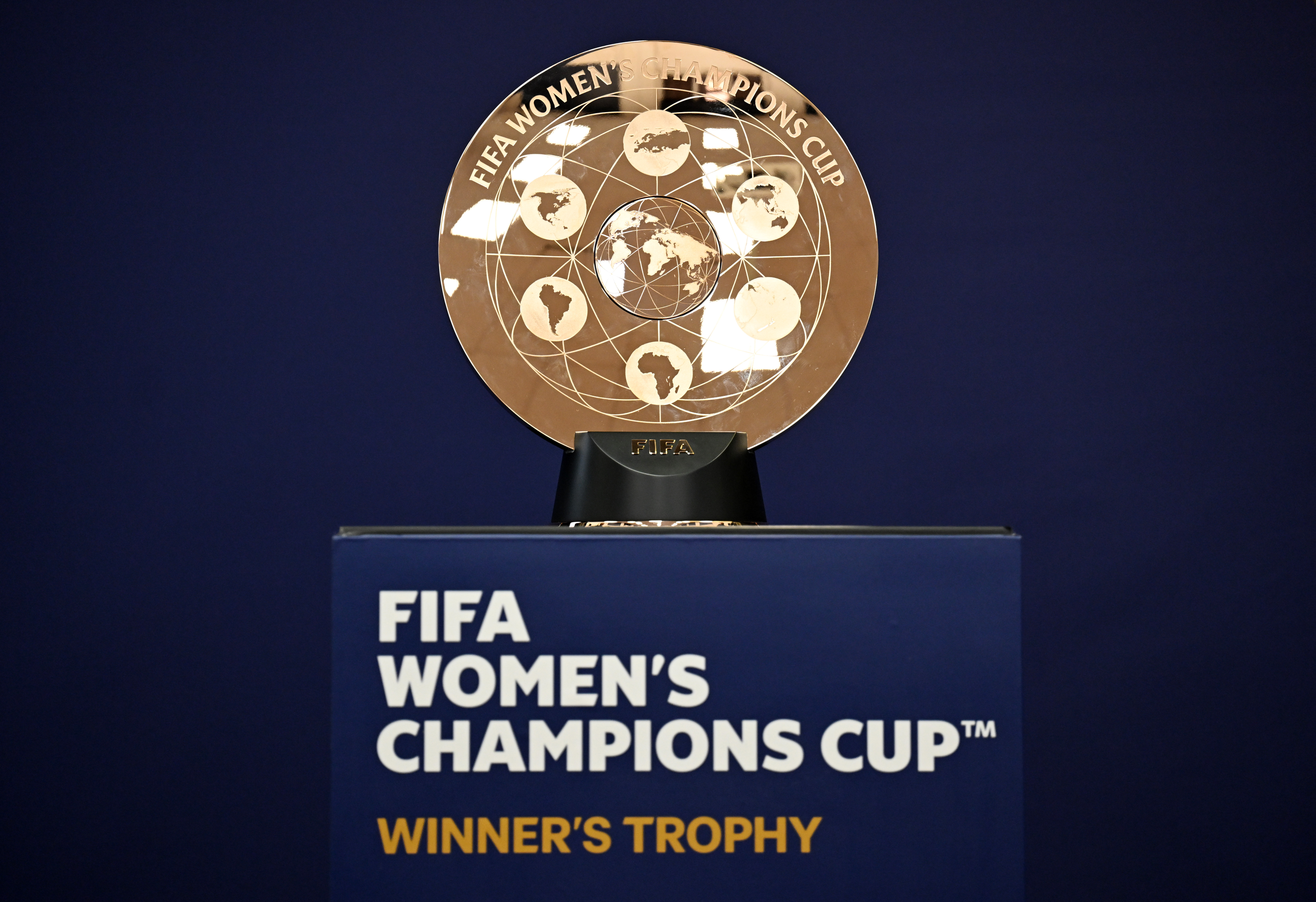Ranked! Arsenal's 15 worst signings of the Premier League era
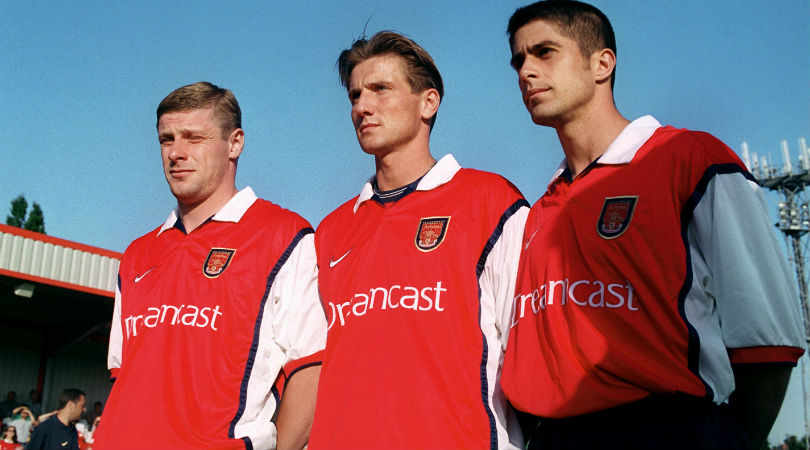
For every Vieira and Henry, there's a Malz and a Diawara
Arsenal have signed some incredible footballers in the Premier League era. Anelka for a pittance from Paris, Henry for what proved to be one of the best bargains in the history of the league and Patrick Vieira for a paltry £3.5m. Sadly for Arsenal supporters, not all signings are equal and for every under-the-radar bargain, there's an overpriced signing ready to disappoint. We take a look at 15 of the worst signings to play - or not, as the case may be - for Arsenal, from youngsters who never quite made it to veterans who should never have.
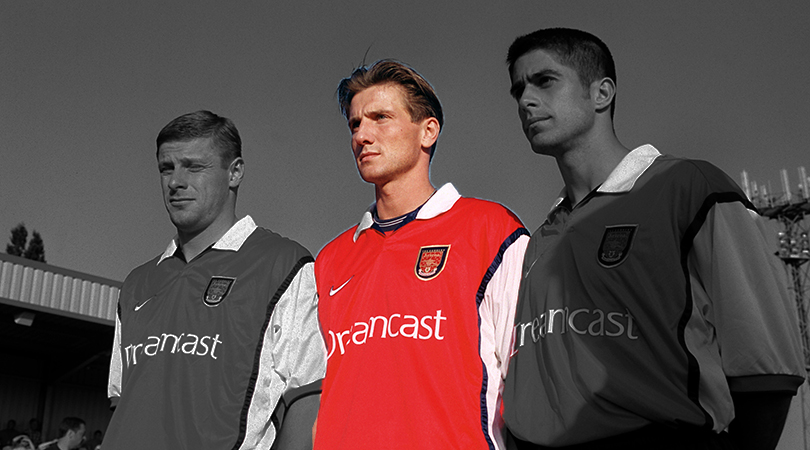
15. Stefan Malz
German midfielder Malz joined Arsenal from 1860 Munich in 1999 for a fee of £650,000 and played just 11 times for the club in two years in North London. He scored on his debut against Preston North End in the Worthington Cup but struggled to break into a midfield containing Patrick Vieira, Emmanuel Petit, Ray Parlour and Freddie Ljungberg.
He was on the bench at the 2000 UEFA Cup Final against Galatasaray in Copenhagen but didn’t get on as Arsenal lost 4-1 on penalties. He left the club in 2001 for Bundesliga side Kaiserslauten before finishing his career in the lower leagues of his native Germany.
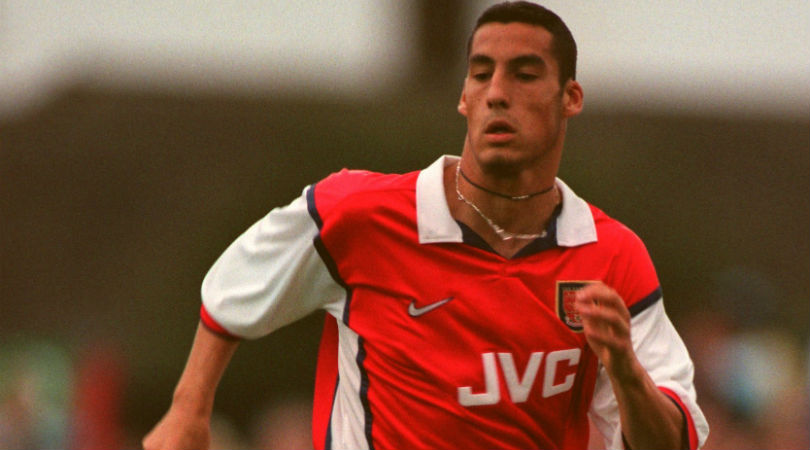
14. David Grondin
Nicolas Anelka set bar unreasonably high for teenage French imports. Grondin, barely 18 when he signed in July 1998 for £500,000, made just four appearances for Arsenal in a five-year association with the club. It's fair to say the left-back never fulfilled the potential he'd shown as a youngster at Saint-Etienne, and his five seasons 'at' Highbury included loans to Les Verts, Cannes, Belgian side Beveren and Dunfermline Athletic before a permanent move to the Pars in 2003.
After just a season in Scotland he played out his career in France and Belgium before retiring at FC Brussels in 2010. His one Premier League appearance came in a 0-0 draw with Liverpool.
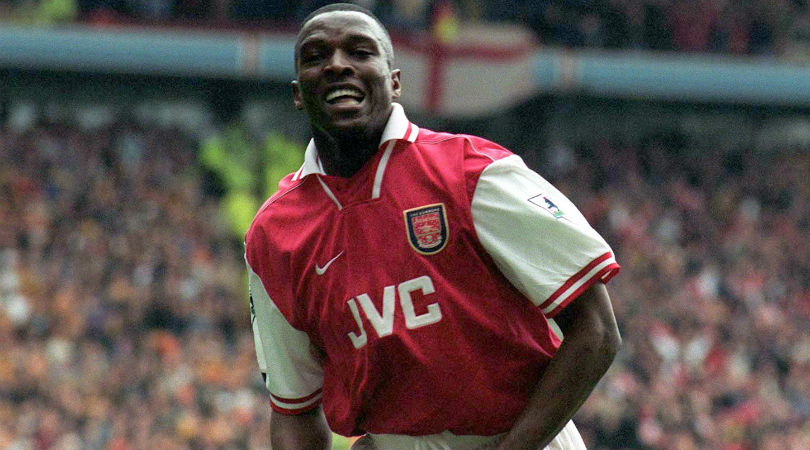
13. Christopher Wreh
Wreh wouldn't be the last former striker to be reunited at Arsenal with his old Monaco manager Monsieur Wenger, but he wouldn't be the best either. Signed in the summer of 1997, the Liberian international scored on his full debut the following March, setting in motion an unbeaten 10-match run that saw Arsenal overtake Manchester United and win the Premier League title.
Scoring the only goal of the 1998 FA Cup semi-final against Wolves earned Wreh a start in the final in place of the miffed club legend Ian Wright. Arsenal beat Newcastle to complete the Double (and Wright left that summer) but Wreh was subbed and never reached those heights again, being shipped out to AEK Athens and Birmingham on loan before a true journeyman career that encompassed Saudi Arabia, Iran, Scotland, Indonesia and Bishop’s Stortford.
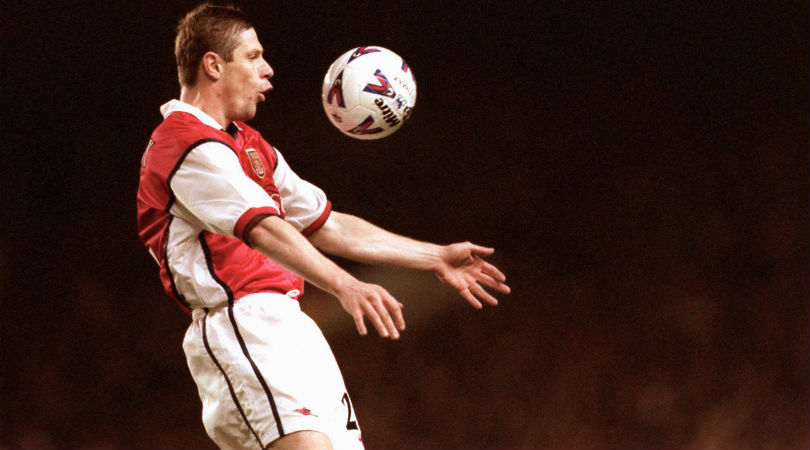
12. Oleg Luzhny
Ukrainian right-back Luzhny joined Arsenal after impressing against the Gunners for Dynamo Kiev in the Champions League. Initially back-up for Lee Dixon, he was never able to make a first-team spot his own, with Lauren signed a year later.
He made more than 100 Arsenal appearances across his four years, but was already 31 when he joined and the best of his career was behind him – with seven consecutive Ukrainian league titles and one Soviet championship to add to his Premier League winner’s medal. Luzhny spent a season with Wolves after leaving Arsenal and is now back at Dynamo Kiev as assistant manager.
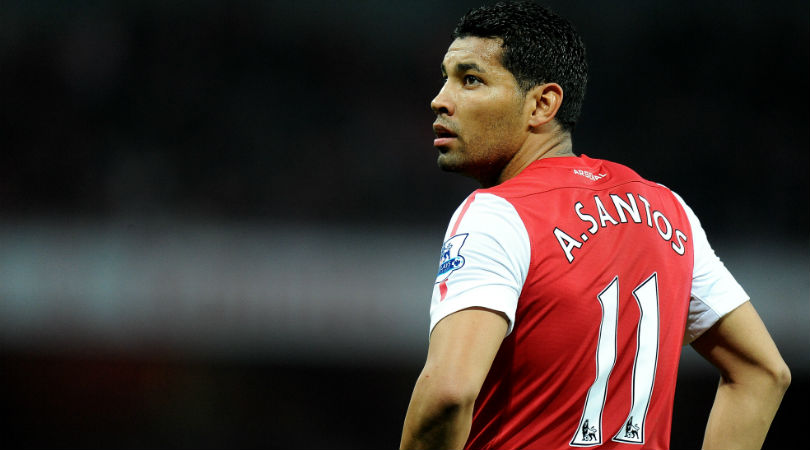
11. Andre Santos
Brazilian left-back Santos signed in summer 2011 from Turkish giants Fenerbahce for £6.2m, slightly less than Arsenal had just received from Manchester City for Gael Clichy. His total of 13 Premier League starts in two years only tells half the story.
Clocking 145mph as he weaved through morning rush-hour traffic on the M25 and A1 – he was late for training – he then swapped shirts with Arsenal pariah Robin Van Persie in a defeat to Manchester United. He was quickly moved on, initially back to Brazil with a hasty loan to Gremio. Now 35, he's since played in India and Switzerland and is now with Turkish second-tier side Boluspor.
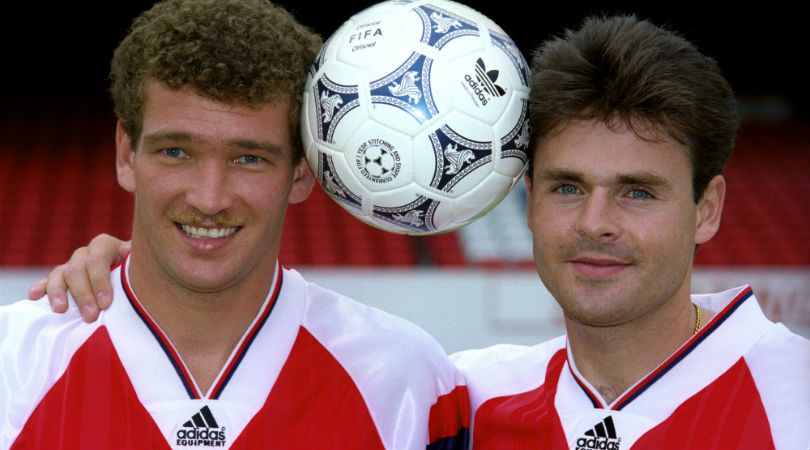
10. John Jensen
Joining Arsenal wasn't the biggest thing that happened to Jensen in summer 1992. Part of the Denmark squad yanked back from the beaches when Yugoslavia were disbarred from Euro 92, Jensen scored in the final victory against Germany. It took him 98 Arsenal matches to bag his only goal for the club: a magnificent curled effort against QPR on New Year’s Eve 1994 spawned a T-shirt with the slogan "I was there when Jensen scored" (even though Arsenal lost).
His solid but unspectacular displays contrasted vividly with Highbury cult hero David Rocastle, whom George Graham had jettisoned in favour of the dour Dane. The transfer came under scrutiny when Graham was accused of taking bungs (he denied it; Arsenal sacked him and the FA banned him). Perhaps JJ was doomed to fail from the start.
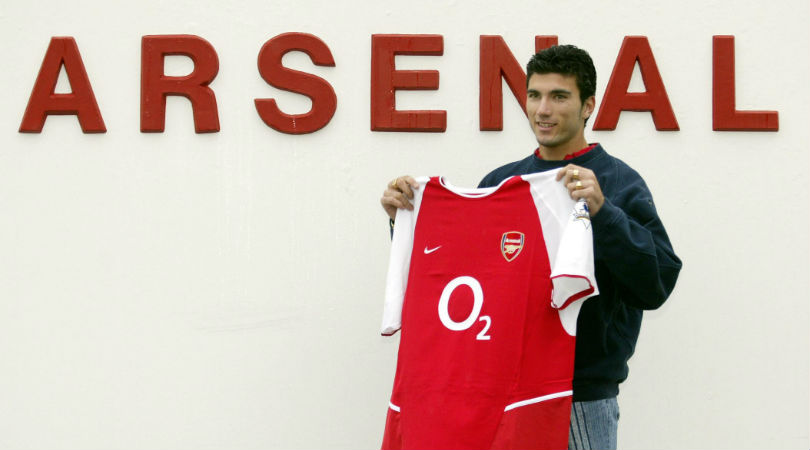
9. Jose Antonio Reyes
Reyes joined Arsenal in January 2004 from local club Sevilla for a then whopping £10.5m, rising to £17m. Just 20 years old, he made an instant impact by scoring twice against Chelsea in an FA Cup tie – and showed promise as the Invincibles cruised to the title.
But that October, a physically confrontational Gary Neville-led Manchester United defence terrified Reyes and ended the Gunners' unbeaten run. More pertinently, the Spaniard lost most of his self-confidence thereafter, and arguably so did Arsenal – notwithstanding the ground-out 2005 FA Cup triumph on penalties. After a five-minute cameo in the Champions League final, a homesick Reyes fled back to Spain with Real Madrid.
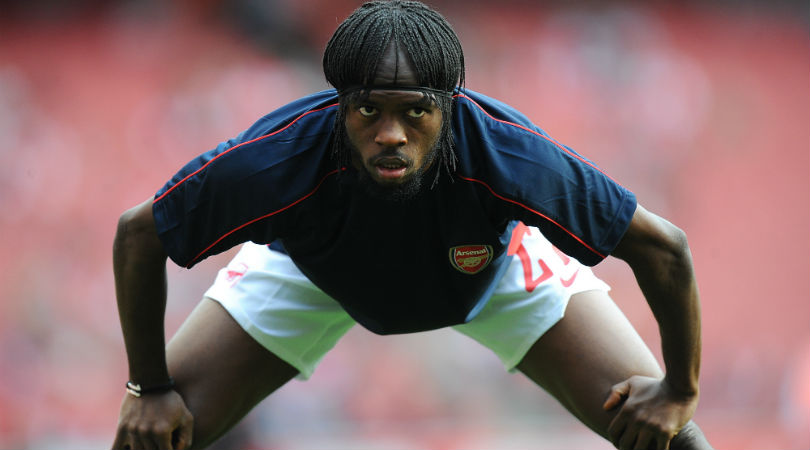
8. Gervinho
By summer 2011 Arsenal had spent six trophyless seasons finishing outside the top two, and fans were promised major investment. At £11m, Ivorian international Gervinho was one of the headline captures (alongside Alex Oxlade-Chamberlain, Mikel Arteta, Per Mertesacker and Andre Santos); it didn't exactly make up for the departures of Cesc Fabregas, Samir Nasri and Gael Clichy.
Despite being sent off on his Premier League debut for slapping Joey Barton – which some might say should earn a reward rather than a punishment – Gervinho showed early promise and played well in spells, but far too frequently wasted good opportunities by shooting waywardly or lacking a final ball. He scored nine in 46 league appearances before being shipped off to Roma in summer 2013.
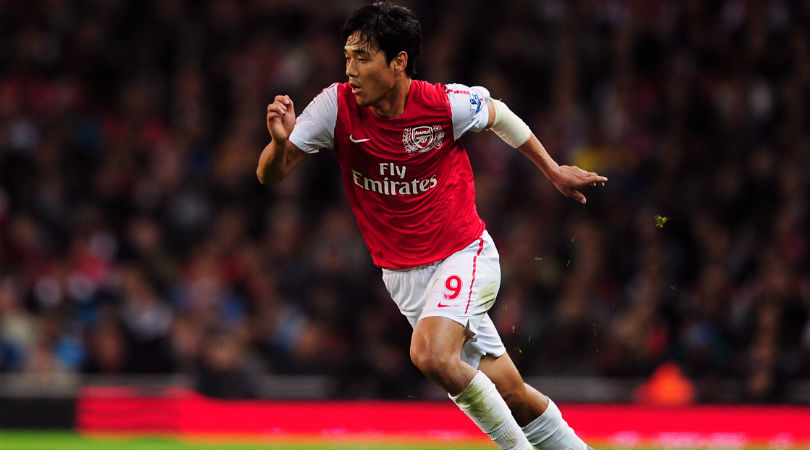
7. Park Chu-young
As you've just read – unless you've landed directly on this page from cyberspace – the summer of 2011 was particularly tough for Gunners fans: Cesc Fabregas, Samir Nasri and Gael Clichy had all jumped ship in search of trophies. And who were the new heroes who would turn around the club's slide toward also-ran territory?
All teams need to be refreshed but Park, in particular, was a head-scratcher. He was 26 and hardly bragged a prolific record with Monaco in Ligue 1, plus he wasn't even a national team regular. Sure enough, such an underwhelming reputation was backed up at the Emirates: seven appearances in all, only one in the Premier League, and one goal in the League Cup. Expectations were incredibly low but Park still managed to disappoint.
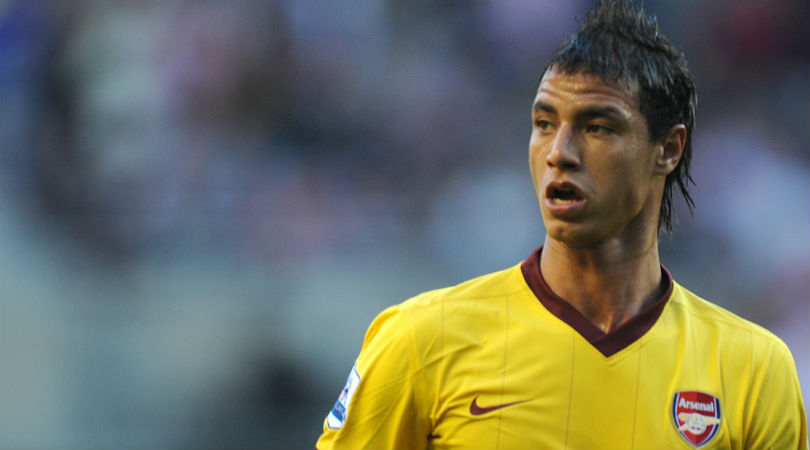
6. Marouane Chamakh
A developing theme for players on this list, but Chamakh’s first few months at Arsenal were promising, with the Moroccan scoring goals in both the Premier League and Champions League following a Bosman transfer from French side Bordeaux.
Yet by the end of the calendar year, Chamakh admitted he’d “completely lost” his edge. Despite his snood, he began to labour dreadfully, and appeared only sporadically for the Gunners, mainly as a substitute: he had a memorable cameo role in October 2012, netting a brace from the bench in Arsenal’s incredible 7-5 League Cup victory against Reading.
Chamakh became a figure of fun for many Premier League fans but Arsenal supporters used him as an example of the club trying to win things on the cheap. In his two-and-a-half years at the Gunners, they won nothing.
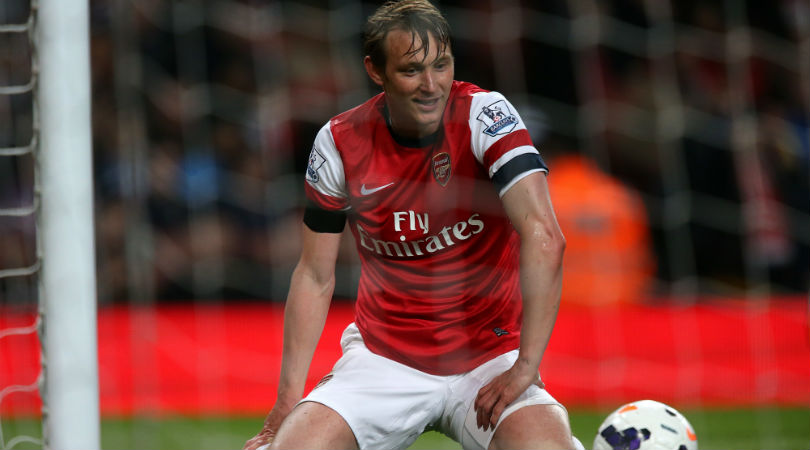
5. Kim Kallstrom
Kallstrom was once a very fine footballer indeed, picking up 131 international caps with the Swedish national side. He was an integral part of the Lyon side that won seven Ligue 1 titles in a row in the 2000s, playing in central midfield with Juninho Pernambucano.
Yet his brief loan spell with Arsenal in the early months of 2014 was a farce from the very start. After sustaining a back injury with parent club Spartak Moscow and failing his medical, it was decided that Kallstrom would complete his rehabilitation at Arsenal.
This shortened his Gunners career to just four appearances, although he did coolly dispatch a spot-kick in the FA Cup semi-final penalty shootout against Wigan. He later described his cameo role as: “the best 15 minutes of my life.” Arsenal – and Kallstrom – won the FA Cup that season, beating Hull in the final.
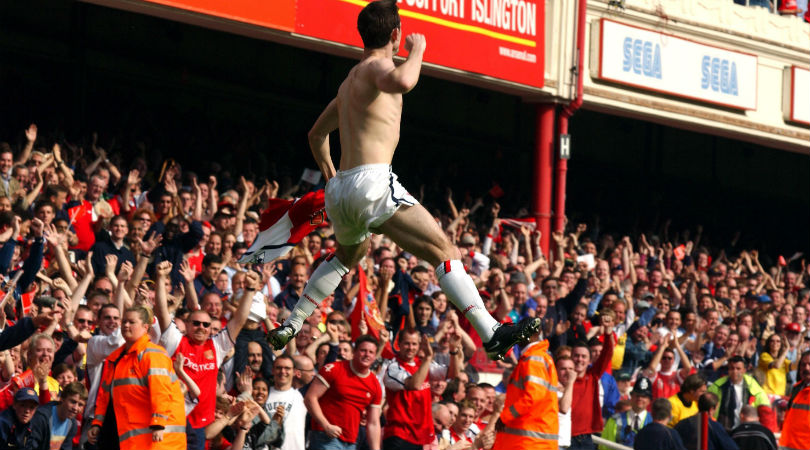
4. Francis Jeffers
Jeffers showed plenty of potential at Everton as a youngster, enough for Arsene Wenger to splash out an initial £8m on him in 2001. The term ‘fox in the box’ quickly became synonymous with the once-capped England international, but he failed to live up to the hype and spent three hugely disappointing seasons in N5.
Sadly, injuries, question marks over his attitude in training, competition for places from the likes of Thierry Henry and Sylvain Wiltord, plus a dramatic loss of confidence meant that Jeffers was merely a bit-part player as Arsenal won the Double in 2002 and the FA Cup in 2003.
There were occasional glimpses of magic on FA Cup runs (including a brace against Farnborough in early 2003), but after being red carded in the 2003 Community Shield clash with Manchester United, he was loaned back to former club Everton.
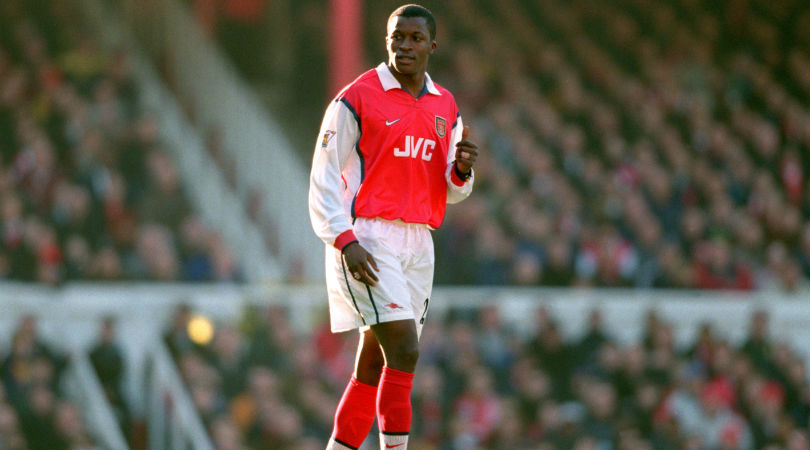
3. Kaba Diawara
Diawara only lasted six months in English football after his £3.5m transfer from Bordeaux, bouncing back to Ligue 1 with Marseille in summer 1999; indeed, Bordeaux later claimed that Arsenal had been a willing go-between in a predetermined transfer triangle, with the Mediterranean club knowing they wouldn't be able to buy directly from a divisional rival. Arsenal denied this and nothing was proven – least of all Diawara's reputation. Arsene Wenger had perhaps unwisely compared him to Nicolas Anelka, but the new boy failed to find the net once.
Diawara’s six-month sabbatical coincided with Manchester United edging past Arsenal in the Premier League and FA Cup en route to the Treble. Diawara squandered several chances during those months – most notably in the crucial end-of-season game at Leeds that Arsenal lost 1-0. Had Diawara converted his three good opportunities at Elland Road, the Gunners might have retained the title; he didn’t, and it played a part in Alex Ferguson being knighted.
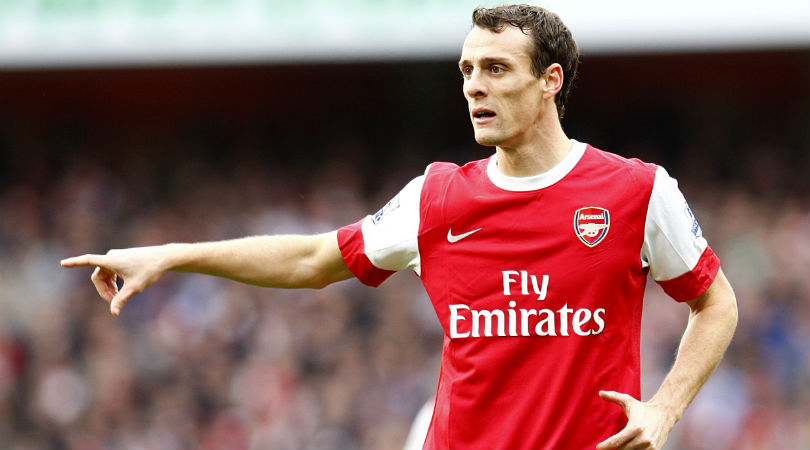
2. Sebastien Squillaci
Having failed to learn their lesson with the signing of Jose Antonio Reyes, Arsenal returned to Sevilla in summer 2010, signing France centre-back Squillaci after he had threatened to go on strike in order to get the move. Upon his arrival in England some unkind wags wondered if he'd gone on strike anyway: he struggled from the beginning, partly because he and fellow new boy Laurent Koscielny were adapting to the Premier League pace, partly because he just wasn’t very good.
The nadir arrived in early 2012, when, during a league game against Fulham, his 92nd-minute clearing header fell to Bobby Zamora, who volleyed home to give the Cottagers all three points. A few weeks later, as Arsenal crashed out of the FA Cup to Sunderland, substitute Squillaci was himself benched after deflecting Kieran Richardson’s 40th-minute effort into his own net. He was soon farmed out to Corsican outfit Bastia.
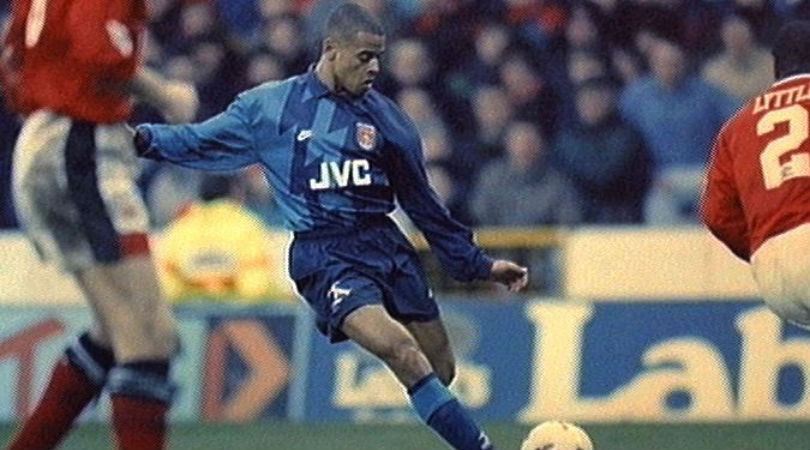
1. Glenn Helder
George Graham's sides tended toward the functional, but one exception was tricky winger Anders Limpar. Having sold the fans' favourite on deadline day in March 1994, the gaffer needed a suitable replacement. Eleven months later, he opted for £2.3m Helder – but the former Vitesse Arnhem flanker made his debut on the very day Graham’s sacking was announced.
Helder possessed a blistering turn of pace, but his crossing was frequently woeful, and one solitary goal during his Gunners career (netted against Middlesbrough a year after he joined) was a dismal return. After 18 months of general ineptitude and dressing-room boasting about his inflated salary, the Dutchman was loaned to Benfica. Since retiring from football Helder has represented the Netherlands at poker, is a well-known percussionist back home and recently took up stand-up comedy.
 Join The Club
Join The Club





